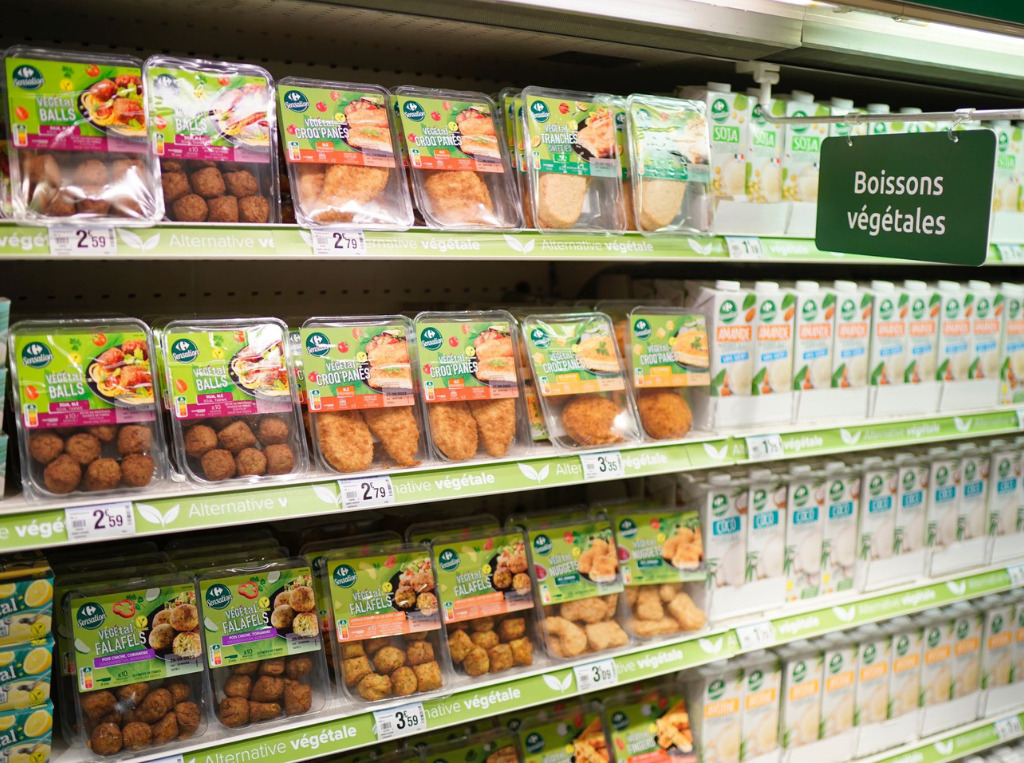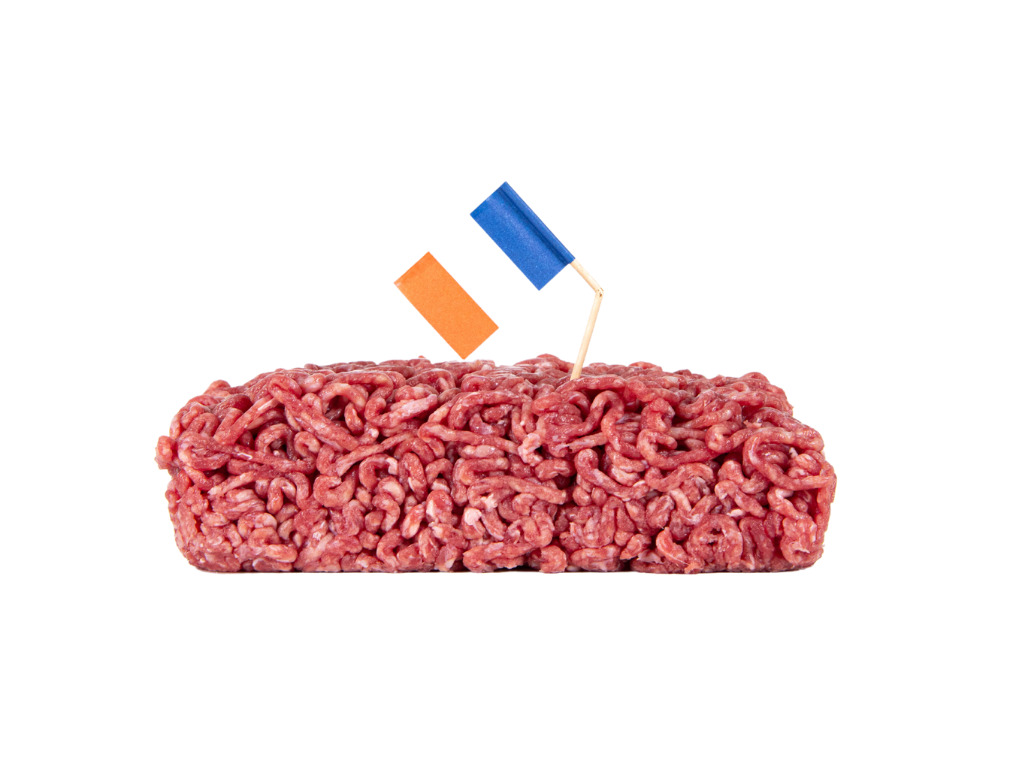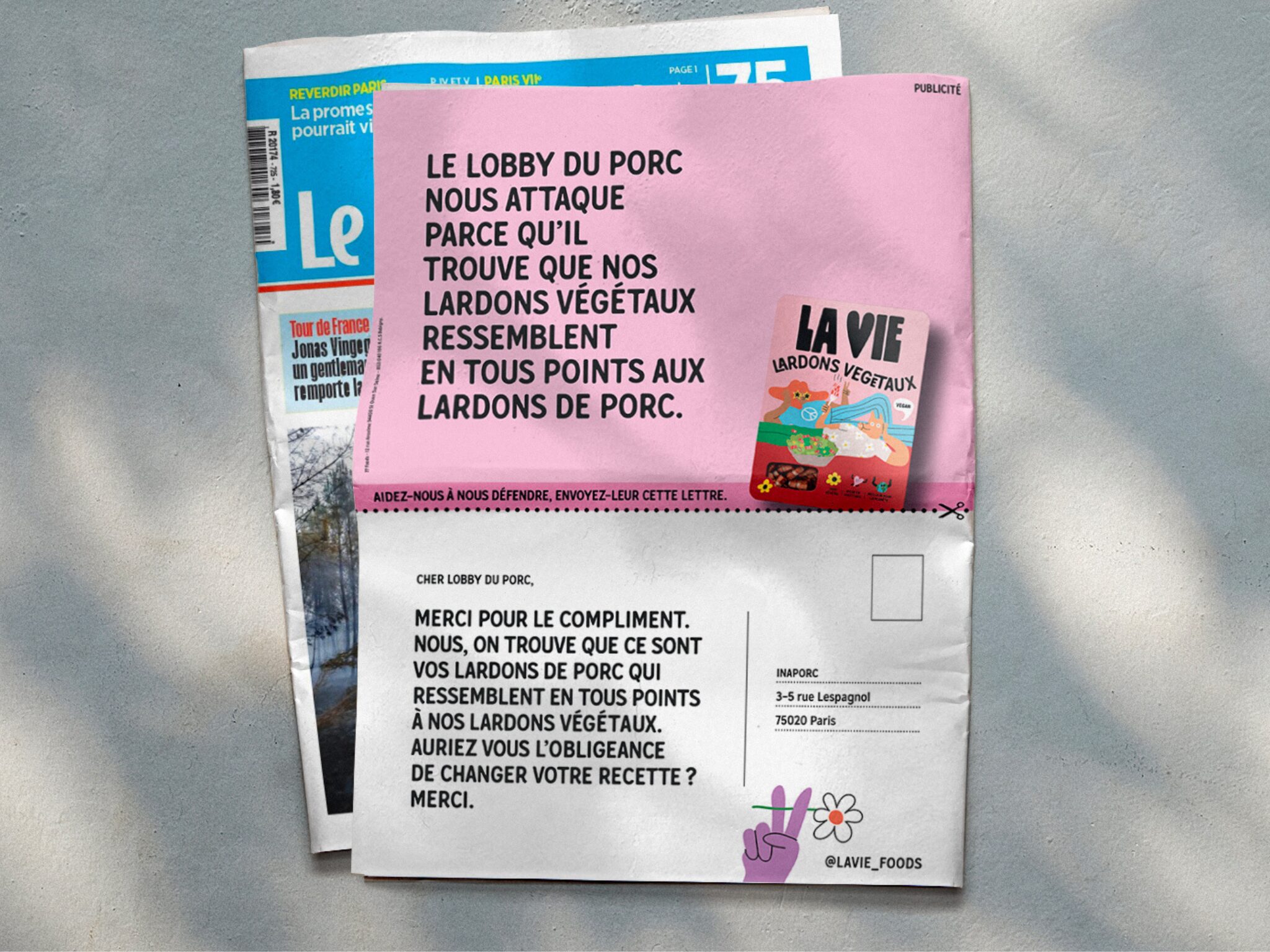French Court Suspends Government Ban on Use of Meat-Related Terms on Plant-Based Food
4 Mins Read
France’s top administrative court has suspended the government’s decree to ban the use of words like ‘steak’ and ‘ham’ on plant-based meat analogues, which was approved earlier this year.
The Conseil d’État has dealt a blow to the French government’s livestock ‘sovereignty plan’ by suspending the ban on meat-related terms used by plant-based companies on product packaging.
The decision by the country’s highest administrative court found that there was “serious doubt” about the legality of the ban – which is set to come into effect on May 1 – and it means producers can continue to use terms like ‘steak’, ‘escalope’ and ‘ham’ on meat analogues.
This is the second time such a ban has been suspended by the Conseil d’État. In June 2022, the government introduced a similar decree to ban such terms. But following criticism from plant-based producers and complaints from meat-free associations, the court suspended the decree, arguing that the timeline was too short and wording too vague.
This second decree, proposed in September last year and approved in February this year, was virtually identical, but has been seized by the court after concerns were raised by vegan food manufacturers.
Why France wanted to ban meat labels on plant-based products

The state council’s decision on the first decree was referred to the European Court of Justice (ECJ), which in 2020 had rejected an EU-wide ban on meat-related terms on plant-based products (it had, however, outlawed words associated with dairy).
In September, the French agriculture ministry took the court’s complaints into account to prepare a new decree, which was co-signed by then Prime Minister Élisabeth, economy and finance minister Bruno Le Maire and agriculture minister Marc Fesneau.
The decree sought to ban 21 terms like ‘steak’, ‘beef’, ‘ham’ and ‘grilled’ from plant-based meat labelling, while there were more than 120 additional phrases like ‘bacon’, ‘sausage’, ‘cooked fillet’, ‘poultry’ and ‘nuggets’ (plus non-meat terms such as ‘liquid whole egg’) that companies could use as long as the amount of plant protein in these products doesn’t exceed a maximum limit ranging from 0.5% to 6%. It was an indirect way of restricting plant-based analogues to use any of these words, given that they all contain 100% plant proteins.
When the decree was published in late February, new Prime Minister Gabriel Attal confirmed “it was a request from our farmers” to ban such terms. It was part of its supportive stance on livestock farming, which includes €400M in aid for the sector. Fesneau himself last year called for an increase in factory farming and cheaper meat production, despite the climate, health and animal welfare costs associated with these practices.
The decree included a fine of up to €1,500 for individuals and €7,500 for companies that fail to comply with the new rules. France’s measures to do so mirrored Italy’s restrictions on plant-based meat labelling, which was part of a wider ban on cultivated meat too. France itself is hoping to prohibit the sale and production of the latter within its borders.
Labelling ban would cause ‘serious and immediate harm’

The Conseil d’État cited the EU’s food labelling legal framework to note that there’s doubt over the possibility of adopting such national measures. It had referred to the same regulation over its 2022 suspension of the first decree too.
The court said a ban would cause “serious and immediate harm” to the financial interests of plant-based manufacturers, six of whom raised concerns that led to the council seizing the ban. It added that some restaurant menus have been using such terms for a long time, and the decree would lead to a significant drop in the turnover of two companies that had questioned the ban whose majority of sales related to these products.
The ban would also result in costs related to packaging and marketing strategies given brands would need to modify their messaging, which could mean a pause in sales. Additionally, since the decree only applies to those who produce within France, their competitors who manufacture in other EU countries will be able to continue to use these terms to sell their products in France.
The ECJ still hasn’t provided guidance about the first decree and whether it was legal under EU law, and the French court has asked it to do so in the coming months. Until the ECJ responds to the query, the ban will remain suspended.
While labelling restrictions have been a thorn in the side for plant-based meat for years, recent developments are encouraging. Italy, for example, is reconsidering its ban after pushback from the country’s leading union of food manufacturers. In another win for the industry, a South African court has ruled against upholding a ban introduced the same month as France’s proposal, which saw strict labelling rules for plant-based food, prohibiting references to ‘meat’ and threatening to seize any products that fail to comply.




